|
|
|
Coronavirus masks reveal hypocrisy of face covering bans
|
|
This spring at Paris Fashion Week, some designers showcased face masks. Others in attendance wore designer-label face masks to block COVID-19. The irony of these fashion statements and the recent ubiquity of the medical mask is not lost on some — especially those living in places like France, where Muslim women can be fined for wearing a veil in public, and Québec, which has banned niqabs and other religous garments for some civil servants. In Canada, hate crimes have been rising — and Muslim women have been one of the main targets. The hate crime may be connected to words coming from politicians who have called the niqab “tribal,” “offensive” and “anti-women.” And those words may, in turn, be connected to the opinion of a majority of Canadians who in polls say they are opposed to niqabs in
public. Will all these attitudes (and laws) change now that everyone may soon be asked, if not required, to cover their faces during the pandemic? Is a face mask used to help block coronavirus different from a niqab?
Today in The Conversation Canada, Katherine Bullock, lecturer in Islamic Politics at the University of Toronto, explores this question by delving into the history and politics of the veil in the West.
Also today:
Regards,
|
Vinita Srivastava
Director of Journalism Innovation | Senior Editor, Culture + Society
|

|
|
Coronavirus News
|
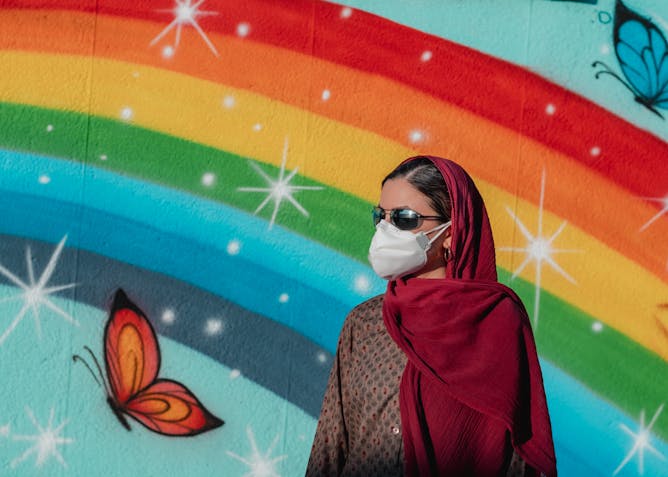
Is a face mask used to help block coronavirus really that different from a niqab?
(Ashkan Forouzani/Unsplash)
Katherine Bullock, University of Toronto
Now that face masks are being used to help fight the spread of COVID-19, it has caused some to look anew at discrimination against Muslim women who wear niqabs.
|

In this March 2011 photo, a security fence surrounds inmate housing on the Rikers Island correctional facility in New York.
(AP Photo/Bebeto Matthews,)
Daina Stanley, McMaster University
Humane measures must be taken to reduce the risks of COVID-19 to incarcerated people. But there are serious barriers to safe community reentry.
|
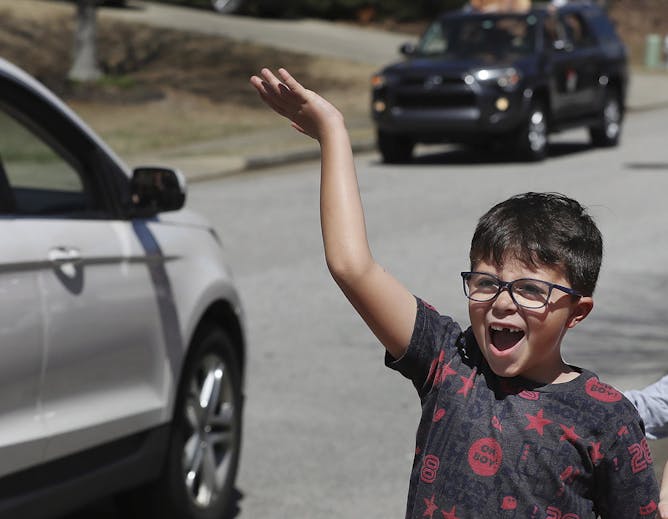
Will Springfield, 8, reacts with joy to seeing Ms. Chriss, his Grade 2 teacher, drive by in a teachers’ neighbourhood parade in Suwanee, Ga., March 25, 2020.
(Curtis Compton/Atlanta Journal-Constitution via AP)
Olivier Arvisais, Université du Québec à Montréal (UQAM); Marion Deslandes Martineau, Université du Québec à Montréal (UQAM); Patrick Charland, Université du Québec à Montréal (UQAM)
Government initiatives to support student learning during and after the pandemic can't be effective without an invaluable educational resource: teachers' expertise and care.
|

Long lines of masked shoppers wait to shop for groceries in Toronto on April 9, 2020.
THE CANADIAN PRESS/Frank Gunn
Michael von Massow, University of Guelph; Alfons Weersink, University of Guelph
Canada's food system has bent but not broken in the face of unprecedented demand during the COVID-19 pandemic. We will continue to have enough food available.
|
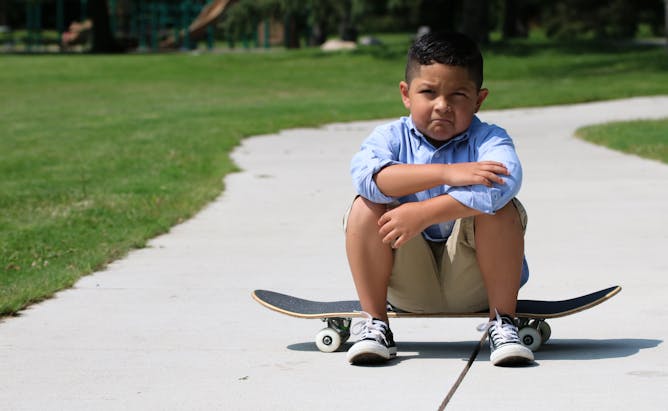
Children may be struggling with feelings of abandonment and a loss of security in their lives.
(Shutterstock)
Elena Merenda, University of Guelph-Humber; Nikki Martyn, University of Guelph-Humber
Grief encompasses our emotional responses to change and loss, and children's grief might be expressed in what psychiatrist Elisabeth Kübler-Ross described as the five common stages of grief.
|
Non-Coronavirus News
|
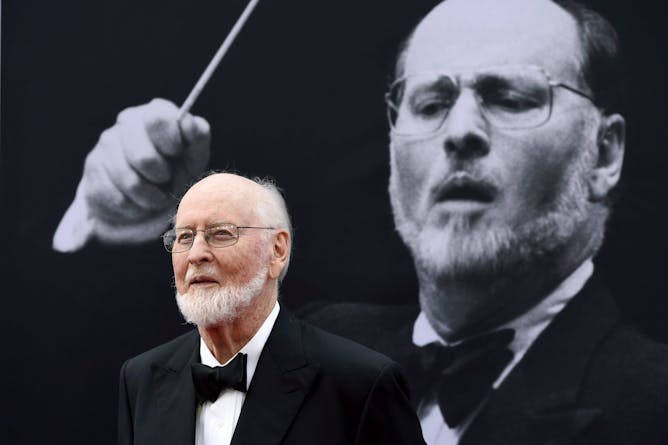
Composer John Williams employed the relationship between music and emotions to great effect in film scores. In this file photo, Williams poses on the red carpet at the 2016 AFI Life Achievement Award Gala Tribute to John Williams at the Dolby Theatre in Los Angeles.
(Invision/AP/Chris Pizzello)
Robbie MacKay, Queen's University, Ontario
The movie 'Jaws' opens with a truly iconic piece of music. Two notes have us on the edge of our seats in anticipation — how does music manipulate our emotions?
|

Shutterstock
Arosha Weerakoon, The University of Queensland
If you still have most of your teeth and they're tightly jammed together, flossing is important. But for some people, simply flossing might not be enough.
|

Connorkeating2259/Shutterstock
Connor Tom Keating, University of Birmingham; Jennifer Cook, University of Birmingham
Autistic and non-autistic facial expressions may 'speak a different language' when conveying emotion.
|
La Conversation Canada
|
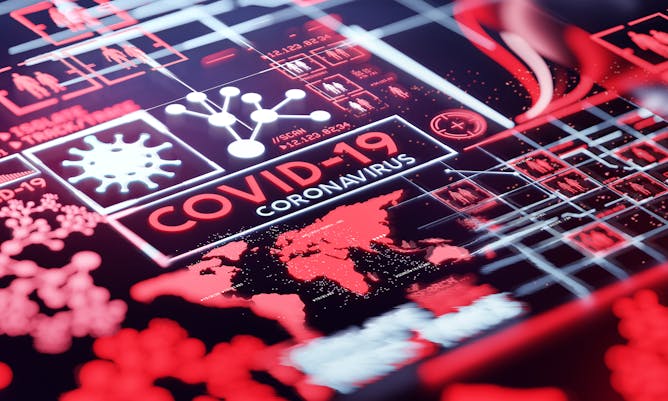
Les données ne s’analysent pas d’elles-mêmes, et les modèles n’émettent pas de directives politiques entièrement formées. Le rôle des scientifiques est primordial.
shutterstock
Mark Daley, Western University; Ted Hewitt, Western University
Les données ne s’analysent pas d’elles-mêmes, et les modèles n’émettent pas de directives politiques entièrement formées. Le rôle des scientifiques est essentiel pour planifier l'avenir de la société.
|
| |
| |
| |
| |
| |
| |
|
|
|
|
|
|
|